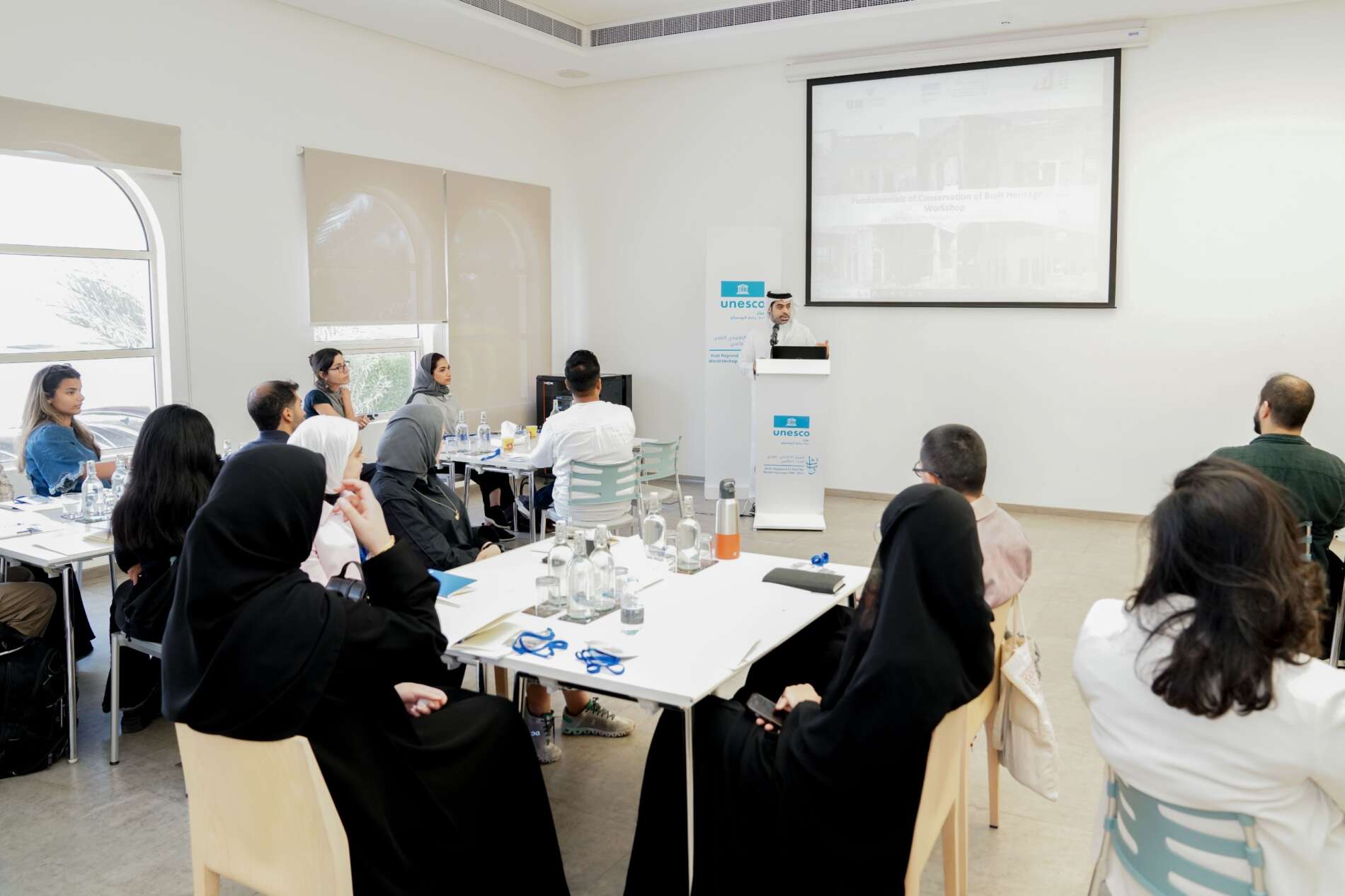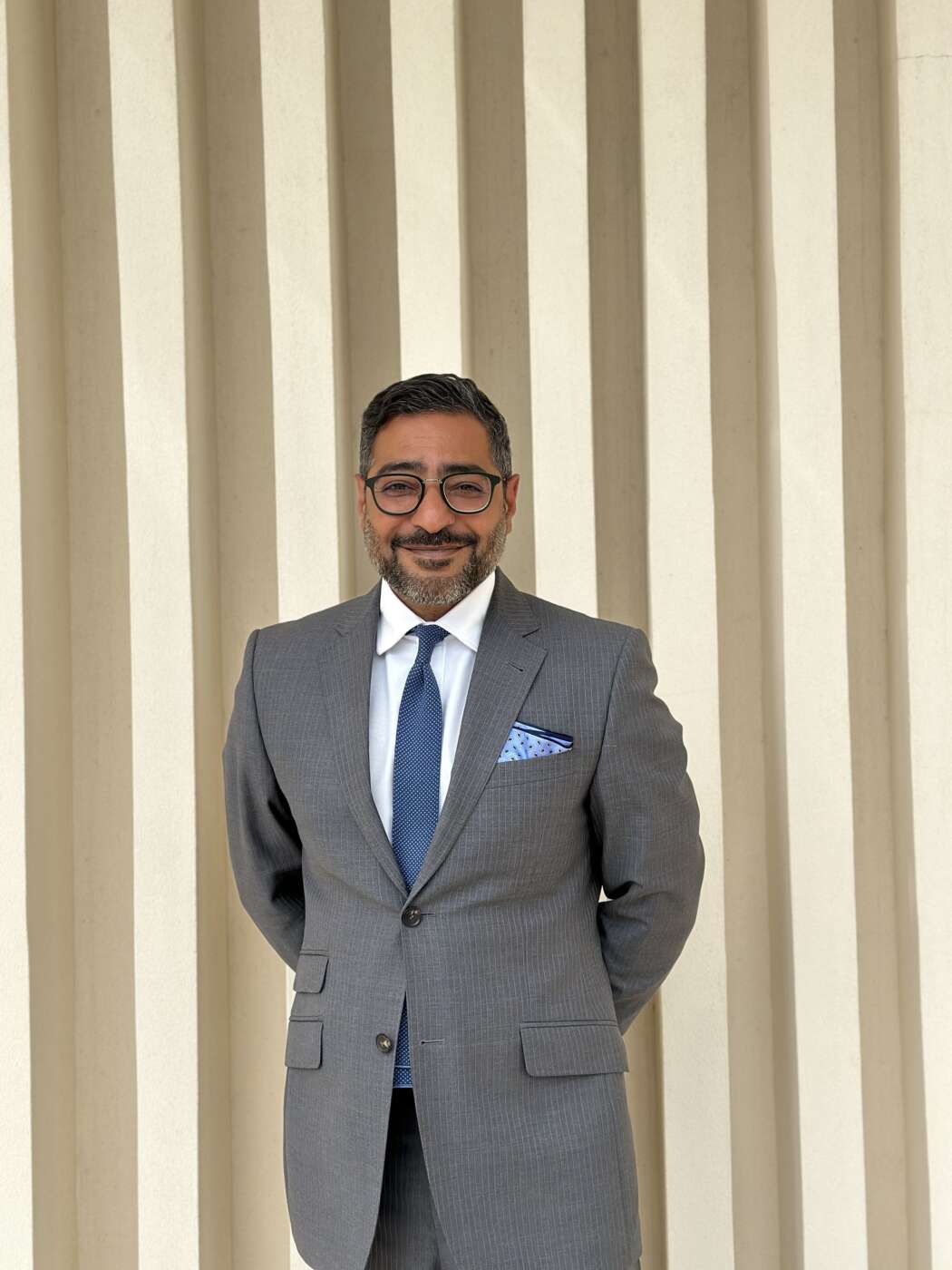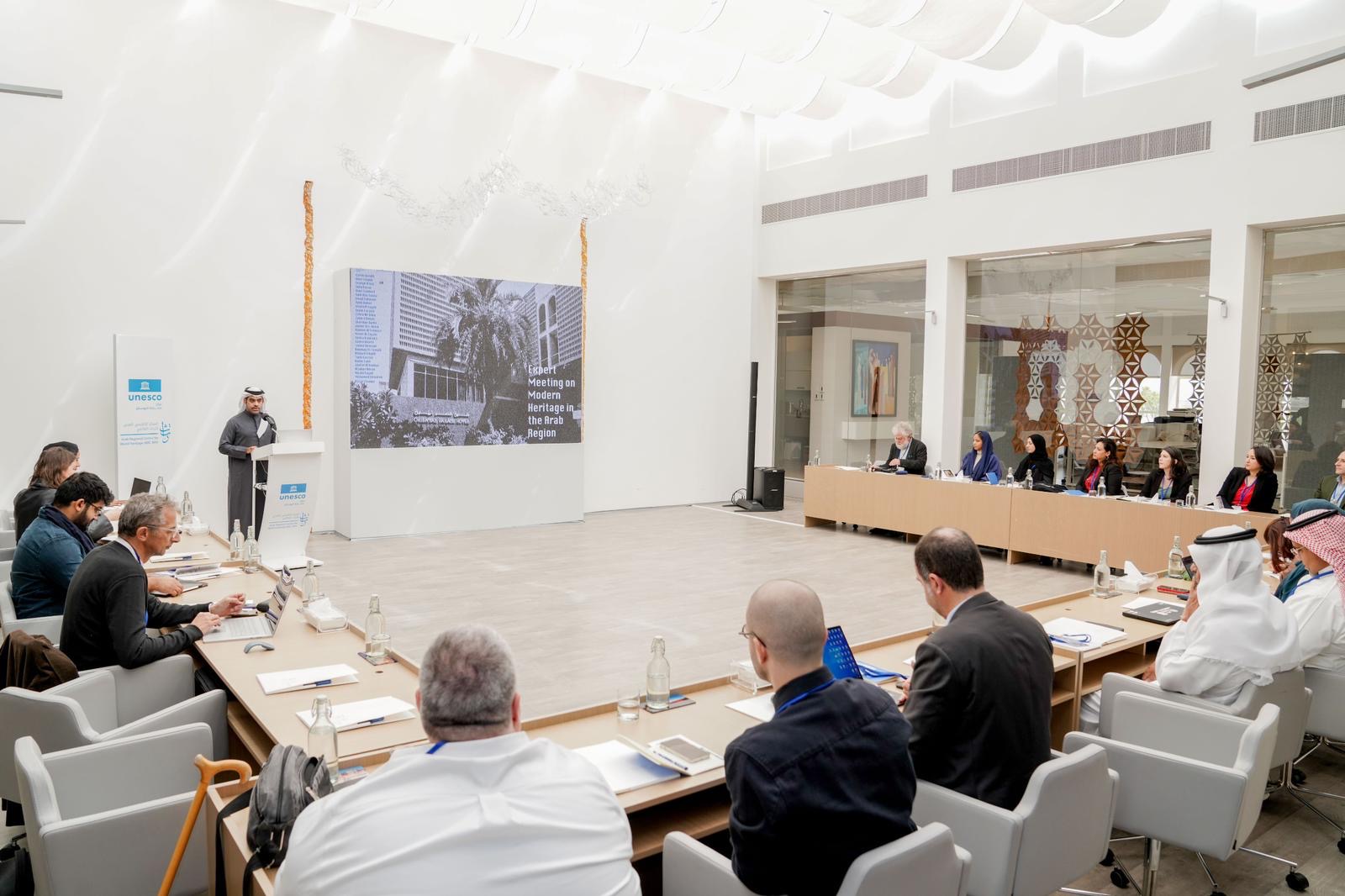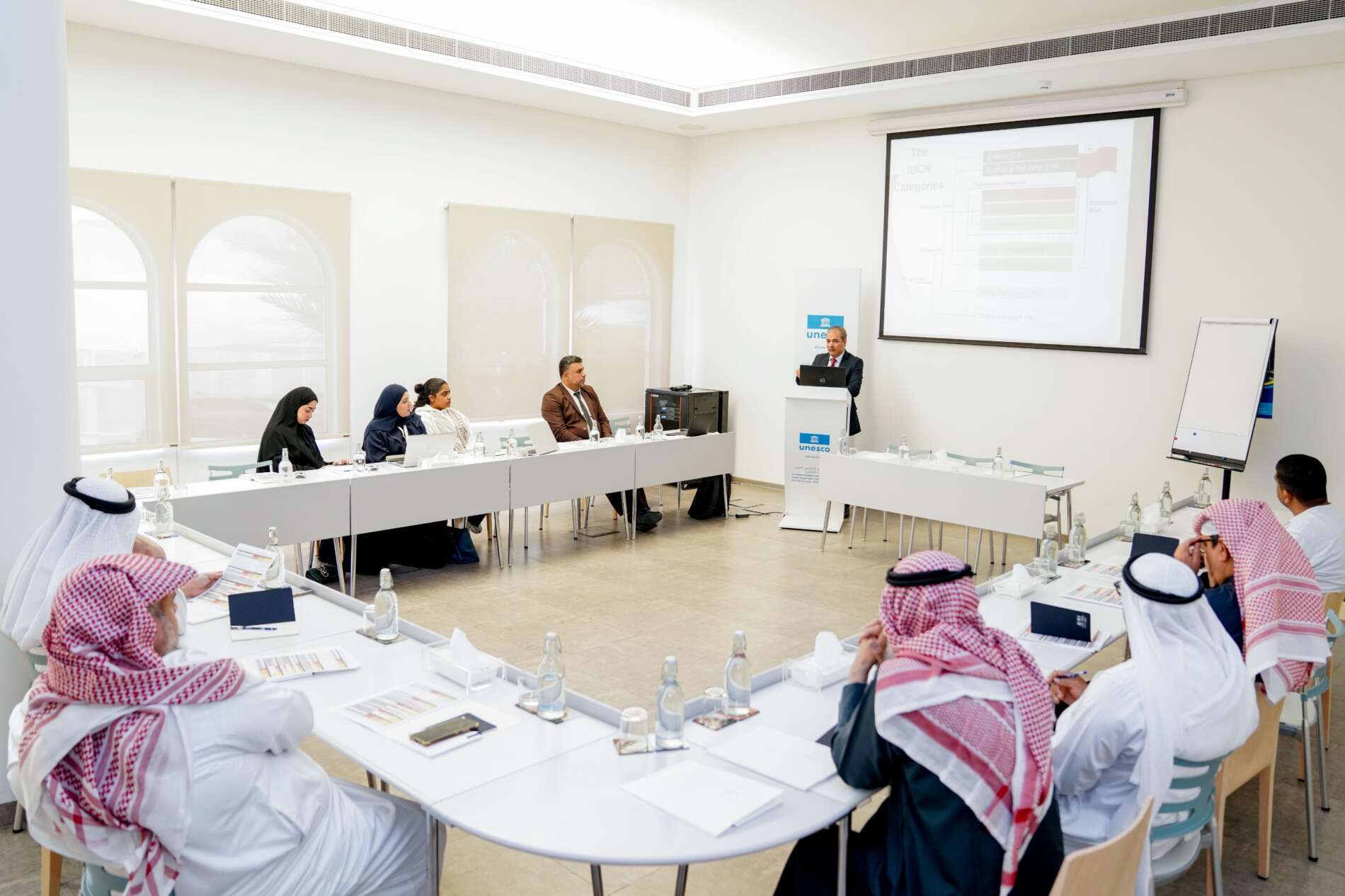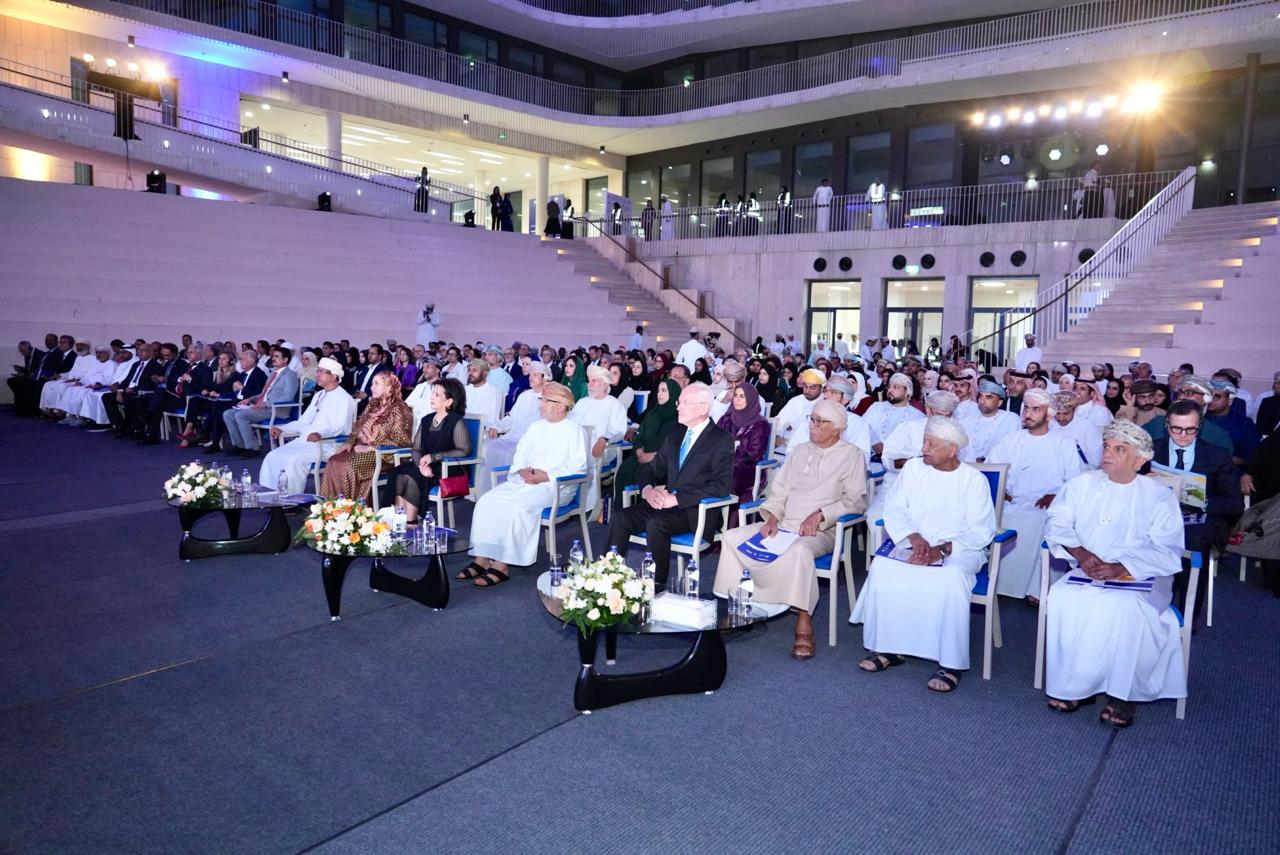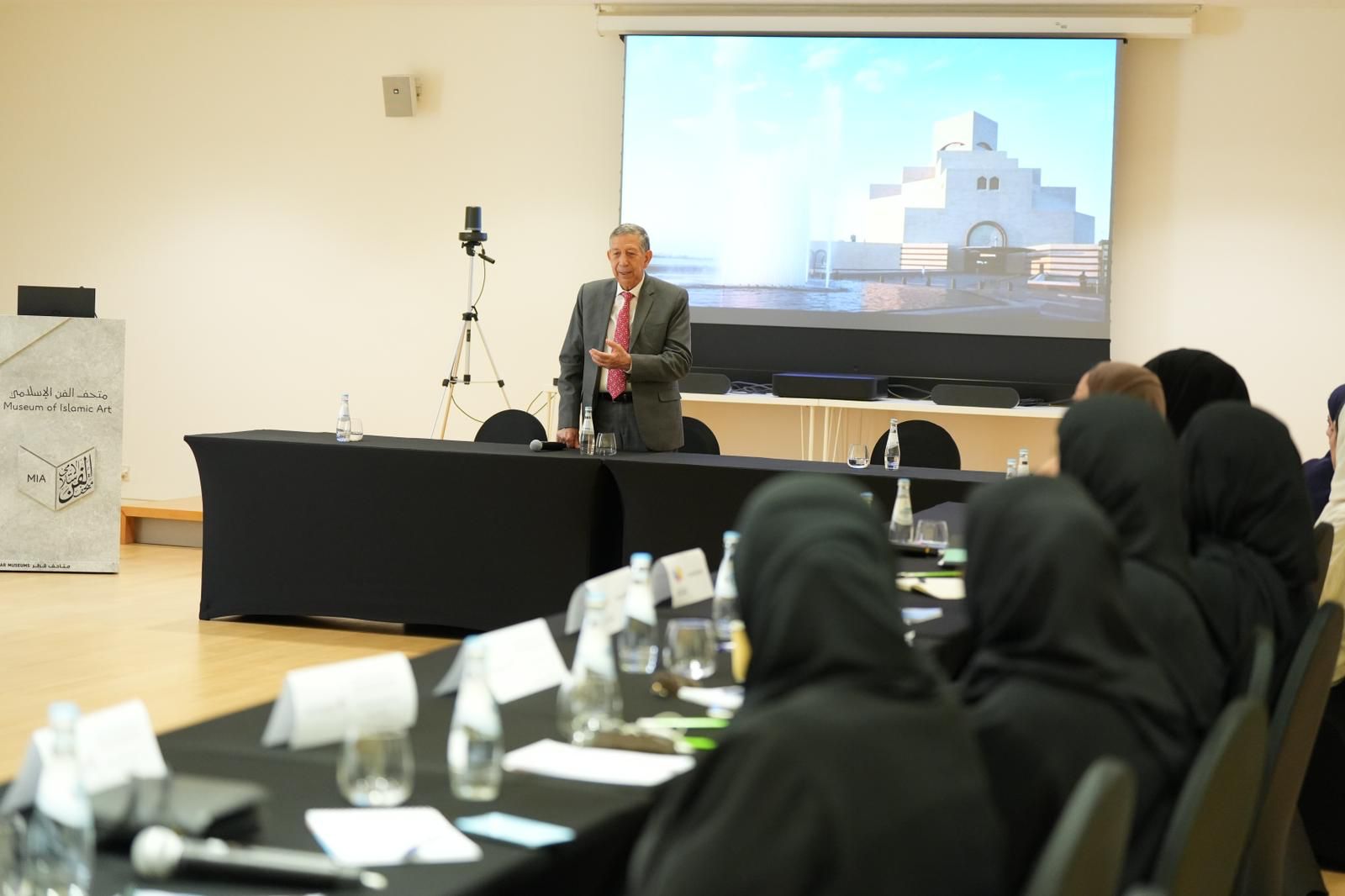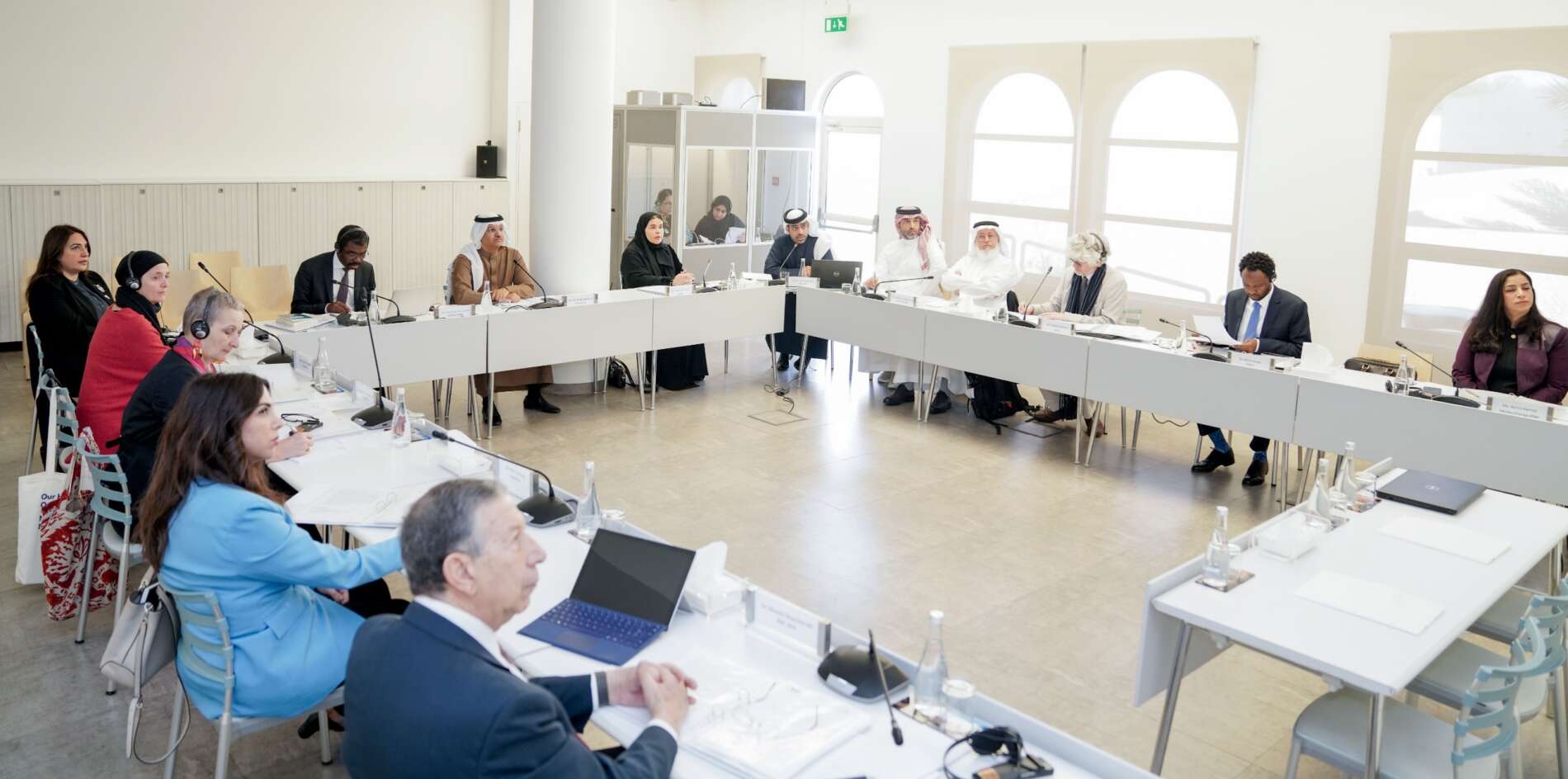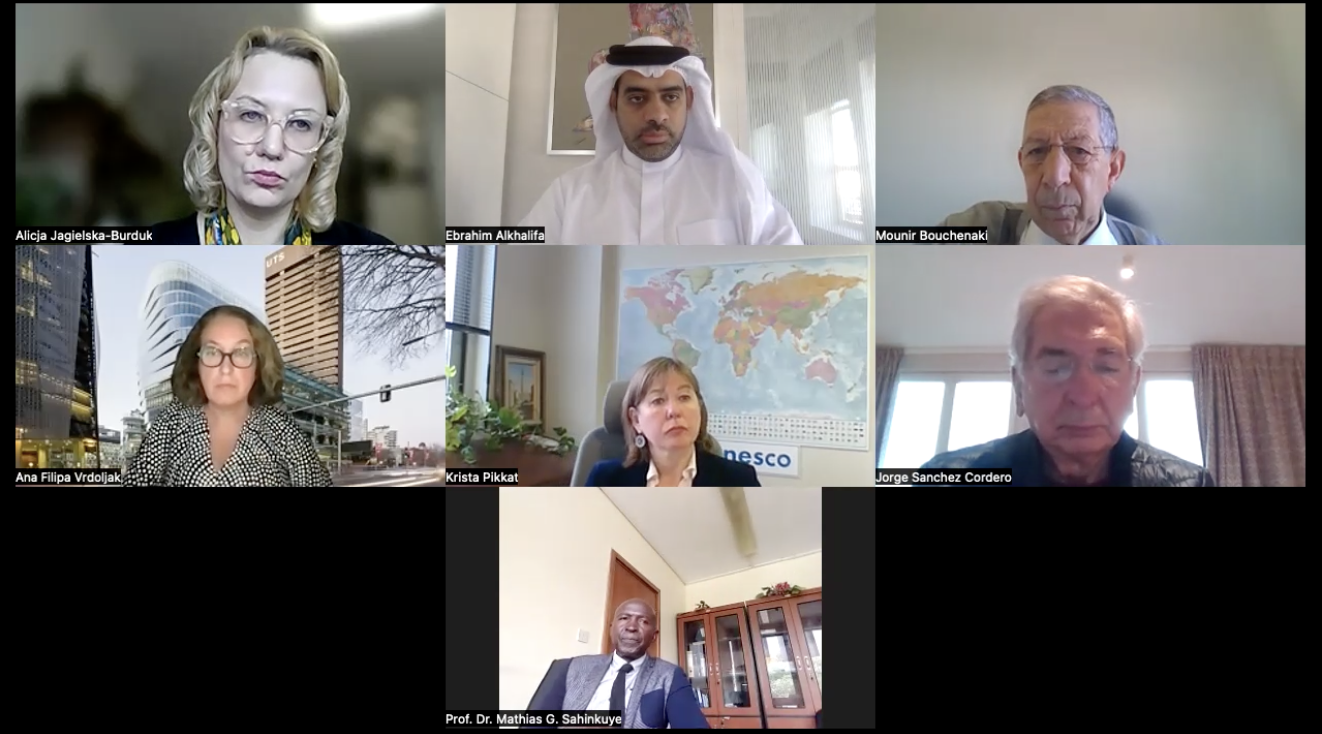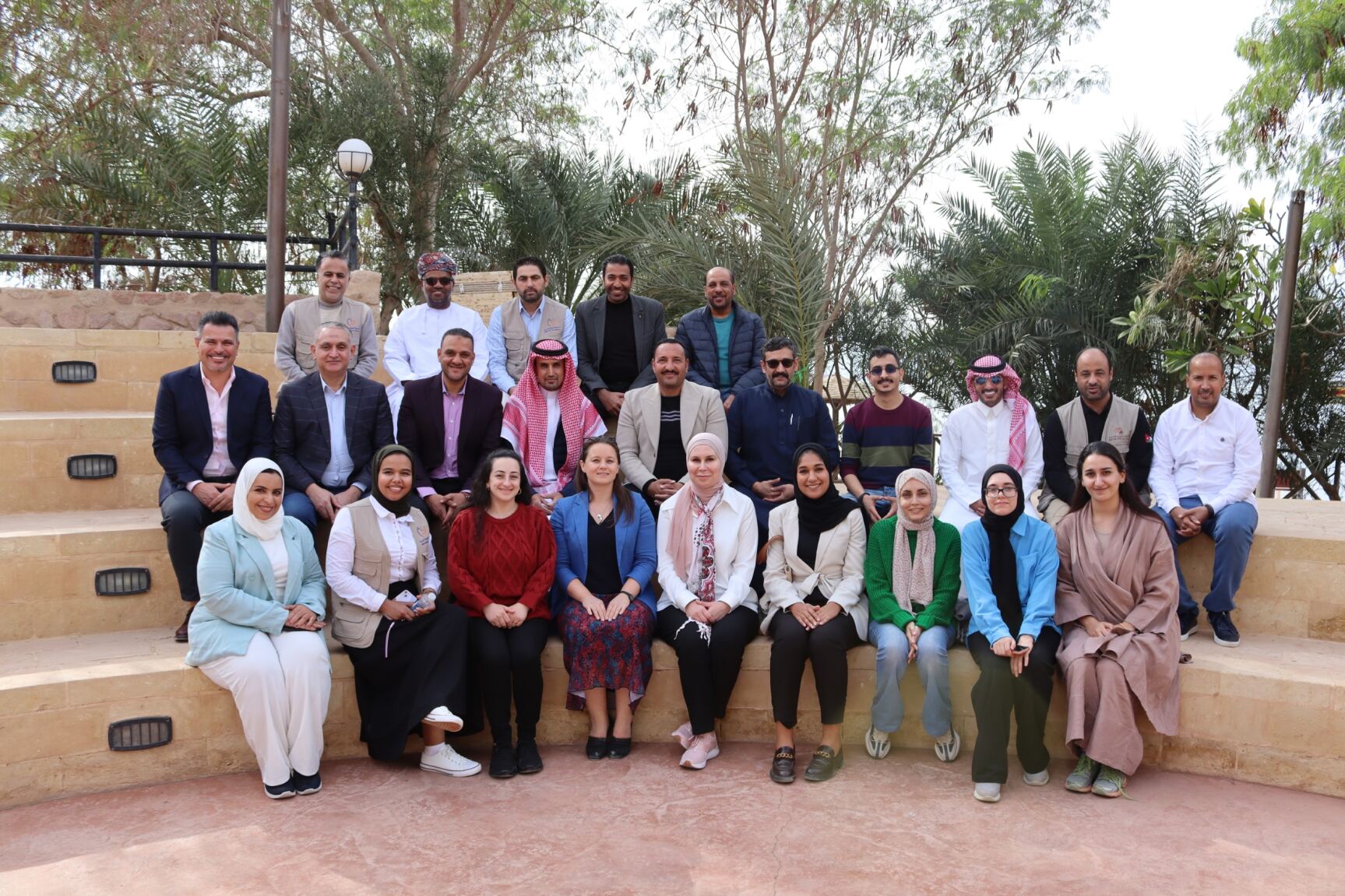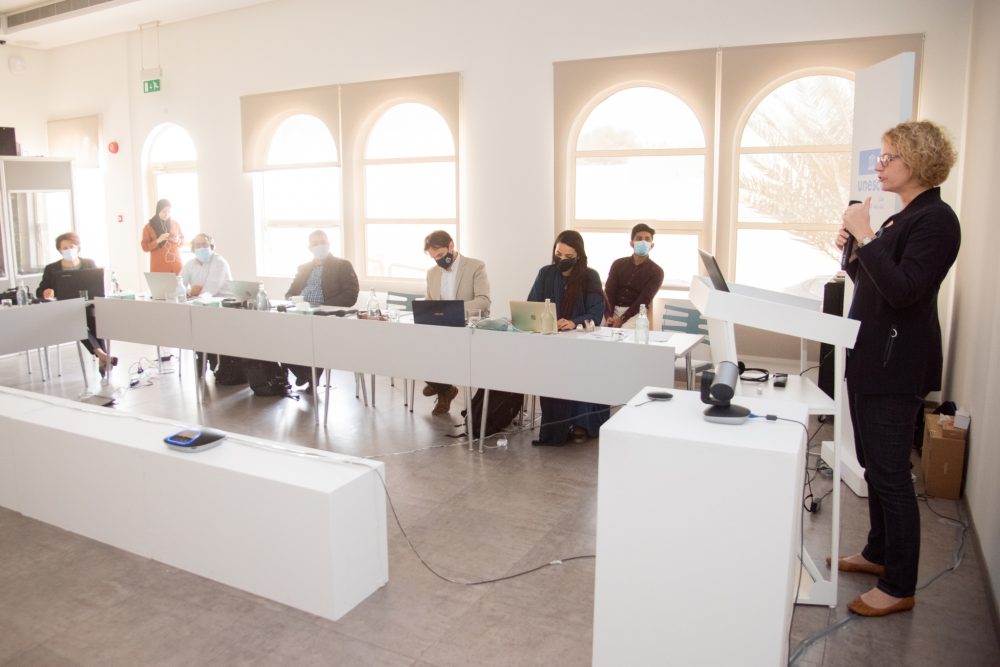
The International Expert Meeting on Underwater Cultural Heritage and World Heritage Sites
From 21 to 23 March 2022, the Arab Regional Centre for World Heritage organised the ‘International Expert Meeting on Underwater Cultural Heritage and World Heritage Sites’ at its premises in Manama, Kingdom of Bahrain in a hybrid format. This meeting was organised based on the initiative of ARC-WH to achieve a more representative and balanced World Heritage list in the region, as well as in light of the increasing discoveries of hundreds of underwater archaeological sites and their links to the Arab region’s World Heritage sites.
The majority of Arab State Parties to the World Heritage Convention have also ratified the 2001 Convention on the Protection of Underwater Cultural Heritage (UCH). Sites in the region continue to face major challenges in terms of capacities, policies, research agendas and heritage practices to successfully tackle the protection, preservation and management of their UCH. Examples of Arab World Heritage sites that can benefit greatly from studying and preserving their UCH and natural surroundings are Qal’at al-Bahrain – Ancient Harbour and Capital of Dilmun (Bahrain), Byblos and Tyre (Lebanon), Archaeological Site of Carthage (Tunisia), or Medina of Essaouira (formerly Mogador)(Morocco), among others.
The meeting was attended by a diverse group of Arab and international experts specialised in Underwater Cultural Heritage, who discussed the importance of marine and underwater archaeological sites, as well as their relationship to World Heritage sites and their connection to the Outstanding Universal Value (OUV). Discussions also covered ways in which to bridge the gaps in the management of these sites, highlighted the important connections to the intangible cultural heritage, and underlined the need for people-centered nature-culture approaches to heritage preservation in order to find solutions to achieve sustainable development. The experts also highlighted that UCH is an integral part of many World Heritage sites and this needs to be reflected in their management plans, and the State of Conservation reports.
The meeting raised awareness on the marine and underwater cultural and natural heritage and the challenges faced by these sites. It also addressed the need to enhance synergies between the 1972 World Heritage Convention and the UNESCO 2001 Convention on the Protection of Underwater Cultural Heritage. Underwater cultural heritage, as it was shown, is already covered by the 1972 Convention and, in some cases, can also bear Outstanding Universal Value in itself, meeting several of the criteria for inscription in the World Heritage List. The meeting concluded with a series of recommendations and action points to better integrate the values and preservation of the Underwater Cultural Heritage within World Heritage processes in the Arab region, including sites in the region´s Tentative Lists.

